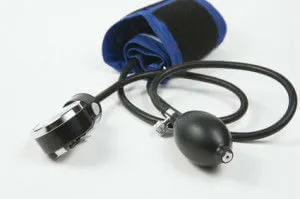A recent study presented at the American Heart Association High Blood Pressure Research Scientific Sessions 2013, revealed that children with one or more high blood pressure readings were about three times more likely to develop the condition as adults.
Their findings suggested that even just occasional spikes in blood pressure at any age might signal problems later in life. The lead study author noted that it highlights the need for pediatricians to regularly check blood pressure and weight. Childhood obesity is a risk factor for heart disease as well as high blood pressure in adulthood.
Why should we be concerned about high blood pressure? There are many serious complications of this condition. It can surreptitiously damage the body for many years before symptoms actually develop, and left uncontrolled, it can result in disability, a poor quality of life or even an early death due to heart attack.
The harm it causes can be extensive including:
Damaging the arteries resulting in arteriosclerosis which may cause chest pain, heart attack, heart failure, kidney failure, stroke, blocked arteries in your legs or arms as well as eye damage.
- Aneurysms, which can potentially rupture and cause life-threatening internal bleeding.
- Coronary heart disease, which can cause heart attack, chest pains or irregular heartbeat.
- An enlarged left heart which increases the risk of heart attack, heart failure and sudden cardiac death.
- Heart failure.
- Damage to the brain by stroke or transient ischemic attack, dementia or cognitive impairment.
- Kidney damage including failure, scarring or kidney artery aneurysm which can cause life threatening internal bleeding.
- Eye damage, including retinopathy and nerve damage which can result in the loss of vision.
- Sexual dysfunction.

The entire family should consider all of the following to prevent or alleviate high blood pressure:
Control your weight. Take steps to reach a healthy weight. A Body Mass Index, or BMI, of 25 or greater indicates an unhealthy weight that can lead to high blood pressure and many other health conditions.
Eat a healthy diet. Be a good example for your children and avoid processed as well as fast foods and encourage them to do the same. Provide lots of organic fruits, vegetables as seeds as healthy snacks. Just by limiting processed foods you’ll naturally decrease the sodium in your diet which helps lower blood pressure. Avoid sugary foods as well as refined foods.
Encourage physical activity. Regular exercise is important to reach or maintain a healthy weight as well as to stabilize blood pressure. Come up with creative ways to get the whole family moving, such as going on hikes or riding bikes together. Aim for 30 to 60 minutes of physical activity most days of the week. Limit time in front of the television as well as the computer.
Practice stress reduction techniques. Deep breathing as well as meditation has been known to significantly reduce blood pressure and offers a host of health benefits.
Set a good example by taking steps to improve your own health while also helping your children to have a better chance at a happier, healthier life!
-The Alternative Daily
